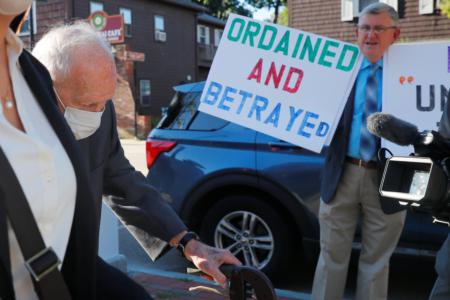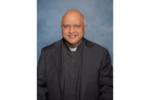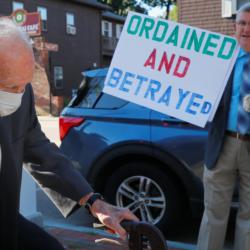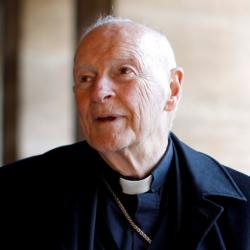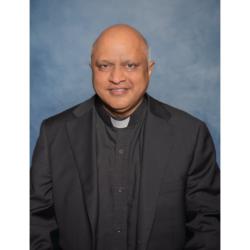Question 2: A flawed law, a false choice
For many people, opposition to physician-assisted suicide is based on respect for God's law "Thou shalt not kill," and on the firm desire to have doctors and nurses function as healers and care givers, not executioners. For 2,500 years doctors have taken the Hippocratic Oath, promising to practice medicine ethically and honestly. Part of the promise is "to do no harm." Indeed, the oath is very explicit about rejecting physician-assisted suicide, promising "I will never give a deadly drug to anybody if asked for it, nor will I make a suggestion to this effect."
Although these promises originated in the ancient world in pre-Christian times, they have always guided conscientious physicians in the ethical practice of the healing arts. To jettison these moral guidelines would have a very detrimental effect on the medical profession and on society.
The American Medical Association (AMA) has stated that "physician-assisted suicide is fundamentally incompatible with the physician's role as healer, would be difficult or impossible to control, and would pose serious societal risks. Instead of participating in assisted suicide, physicians must aggressively respond to the needs of patients at the end of life. Patients should not be abandoned once it is determined that cure is impossible. Multidisciplinary interventions should be sought including specialty consultation, hospice care, pastoral support, family counseling, and other modalities. Patients near the end of life must continue to receive emotional support, comfort care, adequate pain control, respect for patient autonomy, and good communication."
Locally, the Massachusetts Medical Society (MMS) voted overwhelmingly against assisted suicide and have said that "assisted suicide is not necessary to improve the quality of life at the end of life. Current law gives every patient the right to refuse lifesaving treatment, and to have adequate pain relief, including hospice and palliative sedation." In describing their specific opposition to Question 2, the MMS stated further that "The proposed safeguards against abuse are insufficient. Enforcement provisions, investigation authority, oversight, or data verification are not included in the act. A witness to the patient's signed request could also be an heir."
There are many citizens of the Commonwealth of Massachusetts who do not share our faith and for whom the clear biblical teaching is not a convincing argument. To them, we make an appeal to reason: that this is bad legislation because it puts vulnerable people at risk and it promotes suicide. Many have already recognized the flaws and the dangerous aspects of physician-assisted suicide as presented in Question 2 on the Massachusetts ballot this November. Opposition to Question 2 is coming from a broad array of organizations and individuals who often do not agree on other initiatives or proposed laws.
Beyond the grave ethical problems posed by physician-assisted suicide, Question 2 lacks safeguards and monitoring provisions. It is a flawed law and a false choice. Some of the perilous flaws of this legislation that need careful reflection even by those persons who might favor physician assisted suicide in general are:
-- Doctors agree that terminal diagnoses of 6 months or less are often wrong. Many people with a terminal diagnosis live for years.
-- Patients requesting suicide do not need to be examined by a psychiatrist before receiving a lethal prescription, despite the fact that many of them are suffering from the depression.
-- There is no requirement that the patient notify family members. For example, a husband could receive a lethal prescription without his wife being required to be notified. Compassionate care at the end of life should involve the loving support of family members.
-- Question 2 allows the death certificate to be falsified to indicate that the patient died of the underlying disease.
-- We should be supporting improved hospice and palliative care statewide, not legalized suicide.
Others in Massachusetts oppose Question 2 because they believe that a ballot initiative process is not a good way to deal with a complex, ethical issue involving life and death. The legislature exists to be able to review proposals, hold public hearings and build consensus on complicated issues.
We are all called to work for a more just society where the weak and the vulnerable are nurtured and protected. Our faith demands that we not be guilty bystanders. That's why I am asking you to join me and partner with so many medical and disability groups to stop assisted suicide by voting No on Question 2 on Election Day.
The Archdiocese of Boston has developed an educational website on the Church's teachings on end of life issues, www.SuicideIsAlwaysATragedy.org. The archdiocese is also part of a large coalition of groups from other faiths, from the medical community, and from disabilities rights groups that are advocating a no vote on Question 2. The coalition's website is www.StopAssistedSuicide.org.
